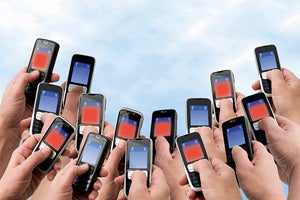More Than Half of College Students ‘Sexted’
More than half of all college students have received sexually suggestive images via text messaging and nearly 80 percent have received suggestive messages, according to research by URI faculty in the Department of Human Development and Family Studies.
Assistant professors Sue K. Adams and Tiffani S. Kisler head a team on two ongoing studies that examine the impact of technology use on physical and mental health, as well as interpersonal relationships in college students.
 In a survey of 204 college students, the team found that 56 percent had received sexually suggestive images, and 78 percent had received sexually suggestive messages. Two-thirds of the group had sent sexually suggestive messages. While most of the messages (73 percent) were sent to a relationship partner, 10 percent were sent without the consent of the person who originally sent the message.
In a survey of 204 college students, the team found that 56 percent had received sexually suggestive images, and 78 percent had received sexually suggestive messages. Two-thirds of the group had sent sexually suggestive messages. While most of the messages (73 percent) were sent to a relationship partner, 10 percent were sent without the consent of the person who originally sent the message.
The prevalence of such activity combined with Gov. Lincoln Chafee signing a law this summer outlawing sexting by minors makes education on technology practices vital for college students say Kisler and Adams.
According to the law, minors who create and send sexually explicit images of themselves can be charged with a “status offense” and referred to family court. Minors and adults who possess or forward sexual images of anyone younger than 18 may be charged under the state’s child pornography laws.
“It’s a delicate situation with the new laws that are in place,” Kisler said. “While it‘s important to protect minors and help them recognize the short- and long-term implications of sending sexually explicit images, opening them up to something as serious as potential child pornography charges may not be the most effective course of action.
“It’s important to help everyone, especially students, understand the importance of setting boundaries around their use of technology,” Kisler concluded.
 Home
Home Browse
Browse Close
Close Events
Events Maps
Maps Email
Email Brightspace
Brightspace eCampus
eCampus


